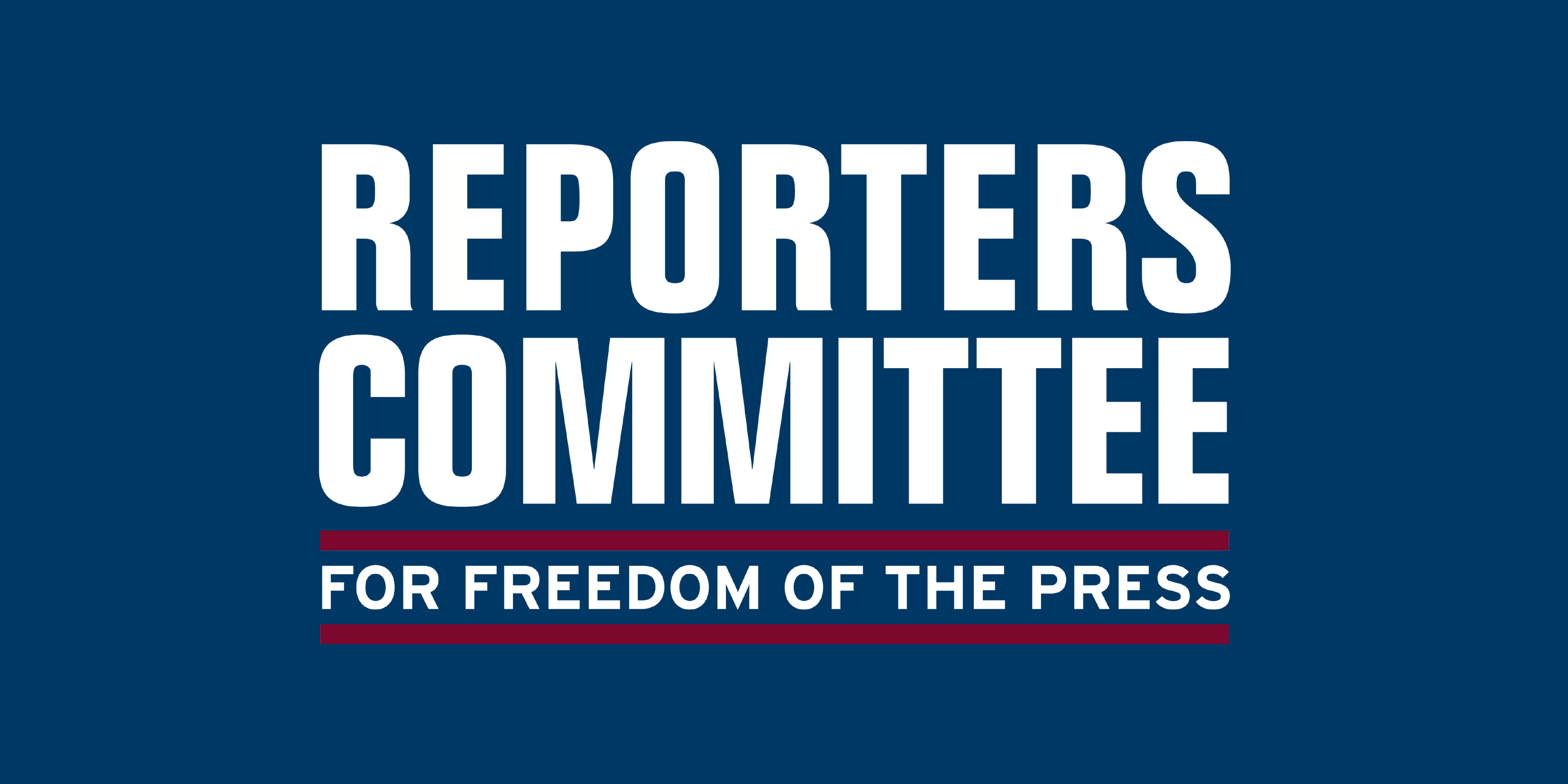With support from RCFP, journalist prevails in fight to change Mississippi city’s unlawful public records ordinance

A city in northern Mississippi will no longer charge records requesters a non-refundable $75 fee to search for public records after a journalist successfully challenged the legality of a local ordinance adopted in 2017.
Last November, the Mississippi Ethics Commission ordered the city of Pontotoc to rescind its ordinance mandating a flat fee to process records requests, concluding that it violated the state Public Records Act. The ruling capped off journalist Lex Talamo’s year-long effort to force the city to end its unlawful charge and get local officials to respond to her run-of-the-mill request for police records.
“I feel amazing about getting the ordinance off the books,” said Talamo, who consulted the free Legal Hotline operated by the Reporters Committee for Freedom of the Press to help make her case for challenging the law. “The Reporters Committee gave us the confidence and the knowledge to successfully fight for accessibility and transparency for the residents of Pontotoc and anyone seeking public information through them.”
‘This can’t be legal’
As a reporter for Lady Freethinker, a nonprofit news outlet that investigates animal cruelty, Talamo is no stranger to filing public records requests with local, state, and federal agencies. But when she reached out to the city of Pontotoc in December 2021 for complaints or reports of animal mistreatment concerning a local roadside zoo exhibitor, she was shocked by what she was told by the city attorney: In order to process her request, he said, Talamo had to pay a non-refundable $75 fee, per a city ordinance unanimously adopted by its board of aldermen in 2017.
“This can’t be legal,” she remembers thinking.
Talamo, who is based in Washington state, followed up a few times to ask for clarification and obtain an estimate for how long the search might take. A staffer from the city attorney’s office confirmed that the $75 would not be refunded — even if the search turned up no responsive records. The staffer also declined to provide an estimate for the total cost of the search or to guess how long it would take.
Frustrated with the city’s response but unsure exactly how to challenge it, Talamo turned to another journalist well-versed in public records requests. The reporter agreed that the flat fee was ridiculous and urged Talamo to contact the Reporters Committee for guidance on filing a complaint with the Mississippi Ethics Commission, which handles public records complaints.
Last February, Talamo submitted a request through the Reporters Committee’s free Legal Hotline that outlined the local public records ordinance and described what she had been told by city officials.
In response, Tiffany Wong, then a legal fellow for the Reporters Committee, said it was likely illegal for the city to require a non-refundable flat fee, rather than a refundable deposit, which would be legal. Wong’s response cited specific sections of the Mississippi Public Records Act, including one that said a “public body should provide a reasonable estimate of the time and costs it will take to fully respond to the request.” She also cited a previous Mississippi Ethics Commission ruling on a public records complaint with similar facts.
“It was extremely helpful,” Talamo said. “So when I went to file my complaint with the Mississippi Ethics Commission, I was able to pretty much copy and paste verbatim what the Reporters Committee had sent to me.”
‘A willful and knowing denial of access to public records’
Roughly eight months after Talamo filed her complaint, the Mississippi Ethics Commission finally weighed in. During a preliminary hearing last November, the Ethics Commission held that the city of Pontotoc’s ordinance violated the state’s public records law. The Ethics Commission ordered the city to rescind the ordinance and threatened to fine each member of the board of aldermen $100 if they failed to do so. Additionally, the Ethics Commission ordered the city to provide Talamo with a “reasonable estimate for producing documents.”
The Ethics Commission issued its final written order on the matter in January.
“[A] public body may never charge more than the ‘actual cost’ of providing access to public records,” the Commission concluded in the order issued on Jan. 10. “Any attempt by a public body to impose fees exceeding actual costs reasonably incurred constitutes a willful and knowing denial of access to public records that warrants the imposition of a civil penalty and the award of attorney fees and costs against the public official charging the excessive cost.”
The order noted that, following the preliminary hearing last November, the city of Pontotoc promptly rescinded the ordinance and adopted a new one that complies with the Mississippi Public Records Act and the Ethics Commission’s order. The city attorney for the city of Pontotoc did not respond to requests for comment.
It took a while longer for Talamo to receive her estimate for the records she had requested. When it finally arrived in January, the total came to $19.33 for a 27-minute search that turned up zero responsive records.
While she didn’t get any records out of the lengthy and stressful battle, Talamo says she feels great about helping change the law in the city of Pontotoc. Still, she can’t help but wonder how many people had been forced to pay the $75 up-front fee. Or worse yet, how many people simply gave up on trying to access public records because they couldn’t afford it.
“Where’s the justice for them?” Talamo asked.
The Reporters Committee regularly files friend-of-the-court briefs and its attorneys represent journalists and news organizations pro bono in court cases that involve First Amendment freedoms, the newsgathering rights of journalists and access to public information. Stay up-to-date on our work by signing up for our monthly newsletter and following us on Twitter or Instagram.